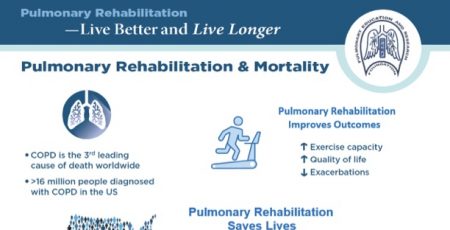21 Jan Daily Online Reporting Facilitates Early Detection and Treatment of Worsening COPD Symptoms
A team led by researchers from Temple University in Philadelphia conducted a 320-day evaluation of 30 patients who reported their COPD symptoms daily using an online digital health application. They concluded that such reporting can not only facilitate early detection and treatment of COPD exacerbations, but lessen the severity of the episodes. Following are the highlights of the study, as reported in COPD News Today.
Worsening symptoms (also called “flare-ups” or exacerbations) often lead to extra visits to the doctor, emergency department treatments, and hospitalizations. If the time from symptom onset to treatment can be shortened, the severity of these events can be reduced by early medical intervention. It stands to reason that if patients recognize when their symptoms are worsening and know to contact a healthcare provider, they will be able to begin whatever treatment is necessary with little delay, which may reduce the amount of medical interventions necessary to bring their symptoms under control and shorten the duration of their symptoms.
In the study, participating patients were asked to report their symptoms on a daily basis. The application compared the daily COPD symptom report with a baseline set of symptoms reported by the patient at a time of normal health. If worsening symptoms were detected, the patient was notified by the application, and an alert was sent to a nurse for review.
With high patient compliance and a responsive medical team on the other end of the monitoring and reporting system, the researchers found that 90% of worsening COPD symptom reports were responded to in less than 11 hours with patient-specific treatment recommendations. “That’s substantially better than response times reported in recent COPD research literature,” said the study’s co-senior author and Director of the Temple Lung Center, Dr. Gerard J. Criner.
Over the course of the study, 4,434 symptom reports were made over 5,178 patient-days of observation. The average reporting compliance was 85.6%, and 475 symptom reports resulted in an alert. The average response time for all alerts was 6.64 hours.
Said Michael R. Jacobs, PharmD, lead author of the study, “This digital health application is an example of how emerging technology can help facilitate early intervention and treatment by the health care team.”





No Comments